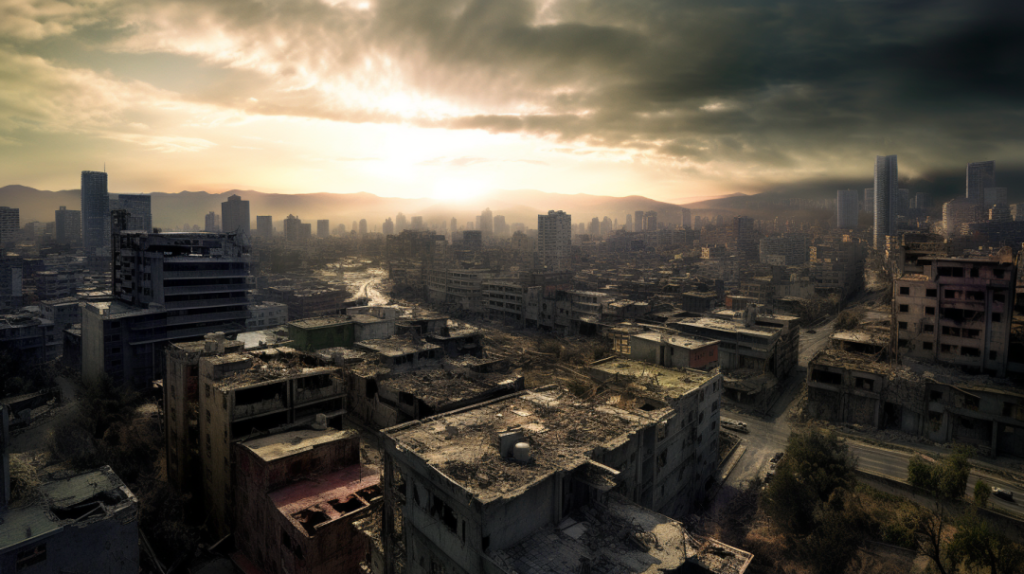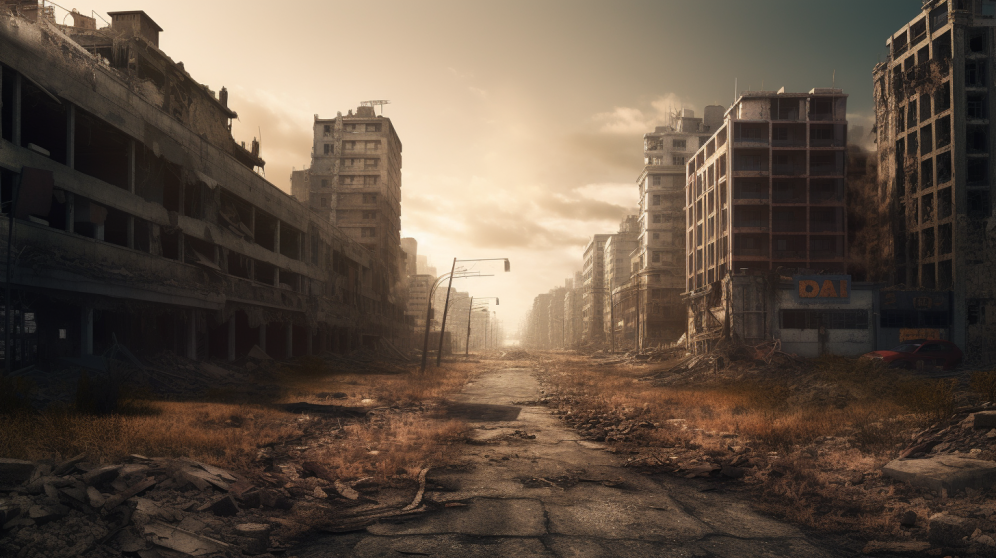When it comes to an economic collapse, it’s not a matter of if it will happen, but rather when it will happen. In the past, we’ve seen the effects of economic collapse in countries such as Venezuela and Zimbabwe, where hyperinflation and the devaluation of currency rendered money essentially worthless. As a result, it’s essential to prepare for the worst-case scenario to ensure your survival and that of your family.
Step 1: Stockpile Essentials
The first step in preparing for an economic collapse is to stockpile essential supplies. This includes non-perishable food, water, and medical supplies. You should have at least a three-month supply of non-perishable food, such as canned goods and dried grains, to sustain you during times of scarcity. Keep in mind that if the economic collapse results in a long-term crisis, you may need to consider storing more than just three months’ worth of food.
When it comes to water, the recommended amount is one gallon of water per person per day. Make sure you have a way to purify water, such as a water filtration system or water purification tablets, in case of a contamination of your water supply. Additionally, it is important to have a first aid kit and any necessary prescription medications.
Step 2: Learn Self-Sufficiency Skills
When the economy collapses, you may need to rely on yourself to meet your basic needs. This means learning self-sufficiency skills, such as gardening, hunting, and basic carpentry. Knowing how to grow your own food and build shelter can be essential when money is worthless. It is also important to learn basic first aid and self-defense skills to protect yourself and your family.

Gardening can provide a consistent supply of fresh fruits and vegetables. You can start small with a backyard garden or even a container garden if you live in an apartment or have limited space. Hunting can provide a source of protein, but make sure you have the necessary equipment and knowledge of the laws in your area. Basic carpentry skills can come in handy if you need to build or repair structures to provide shelter.
Step 3: Build a Community
In an economic collapse, it is important to have a community of like-minded individuals to rely on. Building a community can provide support and assistance in times of crisis. It is also important to share skills and resources within the community.
Consider joining a prepping group or starting one in your local area. You can also build your community by getting to know your neighbors and forming relationships with people who share your values and concerns. Having a strong community can provide a sense of security and support during uncertain times.
Step 4: Protect Your Assets
During an economic collapse, assets such as cash, stocks, and bonds may become worthless. It is important to protect your assets by investing in tangible assets, such as gold and silver. These assets retain their value even when money is worthless. It is also important to consider investing in alternative forms of currency, such as cryptocurrencies.
Investing in gold and silver can provide a hedge against inflation and currency devaluation. These precious metals have been used as a store of value for thousands of years and have proven to hold their value over time. Cryptocurrencies, such as Bitcoin, offer an alternative form of currency that is decentralized and not subject to government manipulation.
It is also important to diversify your investments and not rely solely on one asset class. Consider investing in real estate, which can provide a source of passive income, or starting a business that provides a necessary service or product in times of crisis.
Step 5: Have a Bug-Out Plan
When an economic collapse occurs, it may be necessary to leave your home and community. Having a bug-out plan is essential to ensure your safety and survival.
Your bug-out plan should include a destination, transportation, and necessary supplies. Identify a safe location away from cities and densely populated areas where you can go in case of an emergency. Make sure you have a way to get there, such as a car or a bike, and a backup plan in case your primary mode of transportation is not available.
Pack a bug-out bag with essential supplies, such as food, water, a first aid kit, and a way to defend yourself. Your bug-out bag should also include important documents, such as passports, birth certificates, and any necessary medical records. Make sure your bug-out bag is easily accessible and ready to go at a moment’s notice.
Conclusion
Preparing for an economic collapse may seem overwhelming, but taking proactive steps to protect yourself and your family can ensure your survival in times of crisis. Stockpiling essential supplies, learning self-sufficiency skills, building a community, protecting your assets, and having a bug-out plan are all crucial steps in preparing for an economic collapse.
Remember that an economic collapse can happen at any time, and it’s important to stay informed and remain vigilant. Stay up to date on current events and economic indicators, and be prepared to act quickly if necessary.
Preparing for an economic collapse is not about fear-mongering or paranoia. It’s about being responsible and taking steps to ensure your safety and the safety of those you love. By taking these steps, you can rest easy knowing that you are prepared for whatever the future may hold.
